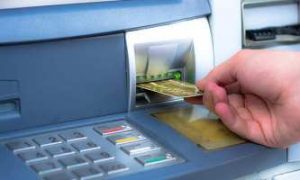All of us have encountered a mutilated or torn currency note from an ATM. These notes are worthless and cannot be used for making purchases. Notes that have become extremely brittle or are badly burnt, charred, or inseparably stuck will not be accepted for exchange by bank branches, according to the Reserve Bank of India. According to the RBI, a mutilated note refers to a note which has a missing portion or which comprises more than two pieces. As per the RBI, notes which become dirty and slightly cut are called soiled notes. Notes with numbers on both ends are also referred to as soiled notes.
Read More: UIDAI news: Aadhaar Enabled Payment System or AePS fees hiked, here’s how much you will have to pay
The name of the issuing authority, Ashoka Pillar emblem/portrait of Mahatma Gandhi, guarantee, promise clause, signature, and watermark are the essential portions in a currency note. If there is something missing from the notes you received from the ATM, you can contact the office of the RBI or your bank.
How to exchange mutilated notes?
These notes can be exchanged at the counters of any public sector bank branch, any private sector bank’s currency chest branch, or any RBI’s issue office without needing to fill any form.
When a person presents up to five pieces of notes, non-chest branches should normally adjudicate the notes and pay the exchange value over the counter. If a person presents more than five notes which are worth less than Rs 5,000, the tenderer is advised to send such notes to a nearby currency chest branch by insured post with his/her bank account details or have them exchanged in person.
Read More: Simple steps to update your PAN card
How to exchange soiled notes?
These notes can be exchanged at any public sector bank branch, any private sector bank’s currency chest branch, or any RBI issue office. According to the RBI, there is no need to fill out any forms.
In this case, if a person presents up to 20 pieces of notes with a maximum value of Rs 5,000, lenders should exchange them over the counter for free. When a person presents more than 20 notes or Rs 5,000 in value, banks may accept them against receipt, with the value to be credited later. Banks may also levy service fees. Lenders are expected to take the usual precautions if the tender value exceeds Rs 50,000.



































